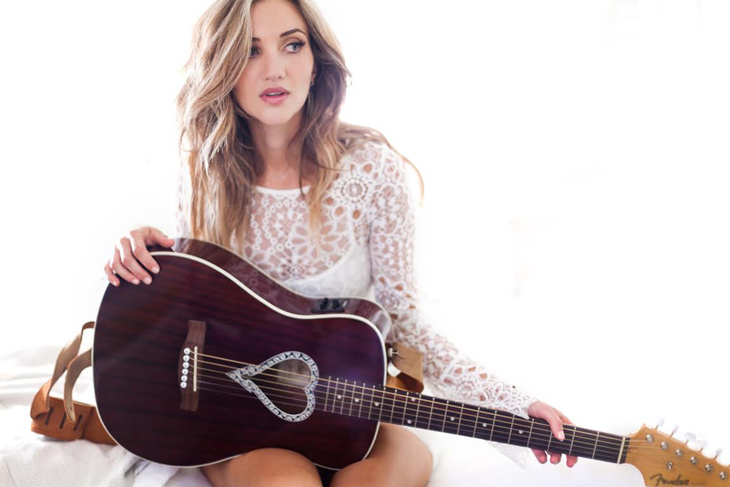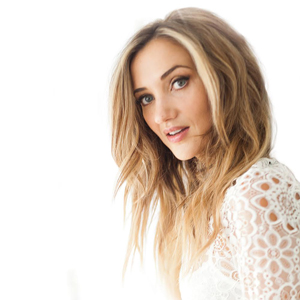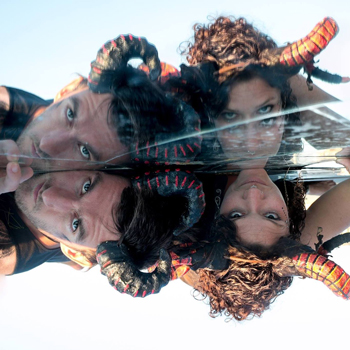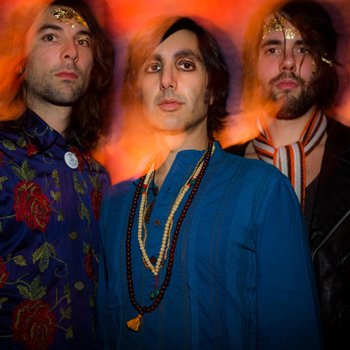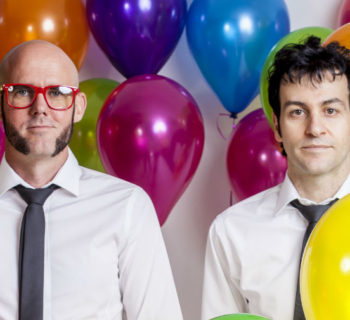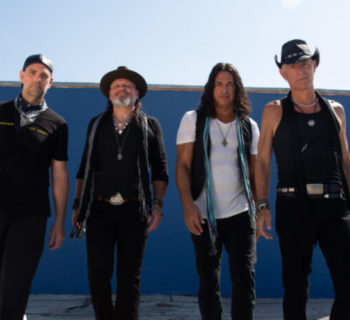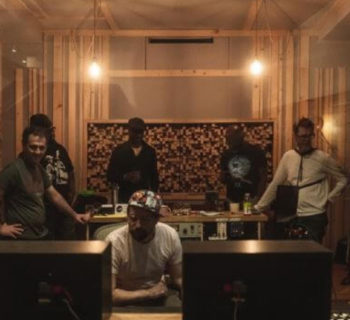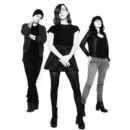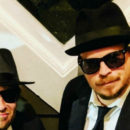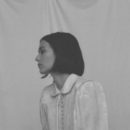Country singer-songwriter Sarah Darling is a natural at turning life's lemons into lemonade. For many years, her career is a testament to the serendipity of the near miss. In 2003 she was one of top three finalists on The Entertainer, but host Wayne Newton said she wasn't exactly “Vegas material,” but that based on her country chops, she should go to Nashville. In 2014, she just missed the final round of ABC's Rising Star. One of the show's judges, country star Brad Paisley, however, promised to share the stage with her at the Grand Ole Opry. True to his word, the two sang a duet that wowed country fans throughout the world.
Nowadays, Sarah Darling sees her name splashed across many countdowns—on Country Music Television's Top 20 Countdown and Billboard's Hot Country Songs. She's made many television appearances, on FOX & Friends, HLN Morning Express with Robin Meade, The Bachelor, and Conan, among others. In 2012 her single "Home to Me" sold more than 8,000 copies in the first week after its release, making it the top selling digital single by a female singer since 2011. In 2013, after a successful run with Black River Entertainment, she decided to leave the label and branch out on her own.
Sarah Darling was kind enough to talk to Rawckus about her childhood, song writing, the new album, Dream Country—and trusting her instincts
Rawckus: Let’s talk a little bit about your childhood.
Sara Darling: I had a very happy childhood. My dad was actually a drummer, so music was always a big part of his life. I started doing music myself when I was really young; according to my mom, I was singing by the time I was two or three years old. Unfortunately, my parents got divorced when I was about six or seven. Music pretty much became everything for me then. I just dove into it, and it became an emotional outlet for me.
Was either parent a mentor for you in your musical education, or were you pretty much self-taught?
SD: Very much self-taught. There are certain records I used to listen to that really taught me a lot about music. I grew up listening to Patsy Cline, but also The Eagles, Stevie Nicks, and Joni Mitchell. I feel like listening to music at such a young age shaped who I am as an artist. I've had no formal training, ever.
What was the most incredible musical experience of your life?
SD: It happened while making my brand new record, Dream Country. When you record the initial tracks, they’re not really finished yet, but you get to hear what they sound like. One day, the engineer burned a copy of me singing with the band live, with the raw vocals and the raw tracks. My husband and I took them home and listened, and we both were pretty much in tears. He described it as being “the highest high.”
I think there were a couple of tracks on my album that we just kept on repeat; one was "Montmartre" and the other "Please Please, Please, Let Me Get What I Want." I felt like it was the first time that I had heard myself really coming through to my fullest potential. We both were enjoying the moment together. It was really special to have that.
Did you have that same feeling when you were actually performing it?
SD: It’s funny– you’re in this little room and you can’t hear anything. It doesn’t sound as magical from the headphones. I remember being really emotional on a couple of those tracks. What’s interesting is that I used the original vocals when I recorded live with the band on those two songs. I could never beat those vocals, because usually when an artist records a song, they’ll go back and do the vocals later. There was just something that happened, though, with me singing with the musicians, and feeling the music and what I was singing.
You've probably written lots of songs that didn’t make it onto Dream Country. How did you go about selecting the songs for the album? Did you have a story arc?
SD: That’s a very good question, given that this project was so hands-on for me. I would say that yes, I had a story arc. It’s really a concept record. I called it Dream Country because there are a lot of encouraging songs for the dreamer and a lot of the lyrics really related to where I was before making the album.
I had parted ways with a long-time record deal and was itching to do something else but had no idea where I was going. A lot of the songs really reflect that. Take “Wandering Star,” for instance; it’s okay to not know where you’re going. “Starry Eyes” and “Halley’s Comet” are about believing in yourself.
It was a very therapeutic record to write. My hope for everybody who listens to it feels the light from it. A lot of heart and soul were put in.
When I first saw the title I thought, “This is going to be escapist.”
SD: It’s completely escapist!
Well, yes and no. It’s about the hero’s journey. It’s about facing and overcoming obstacles. It also has that therapeutic element of escape.
SD: Thank you, I appreciate that. I think that you just hit the nail on the head. There’s a track called "Montmartre;" my love story started there. There’s something wonderful about going there in my mind and taking people on that journey.
It was a very therapeutic record to write. My hope for everybody who listens to it feels the light from it. A lot of heart and soul were put in.
Is "Montmartre" your favorite song on the album?
SD: It is. It’s so different, and I never thought that I would write a song like that. It completely stretched me as a writer and a singer. Every time I listen to it, it reminds me of watching a movie with Audrey Hepburn taking a trip to Paris.
You’ve now performed on the Grand Ole Opry stage 83 times! Describe how that feels.
SD: It’s an amazing feeling. I would kind of describe it as an out-of-body experience, because when I was little, my Grandpa, who had gotten me into music (especially country) said, “You’ve really made it when you’ve been on the Grand Ole Opry.” Happily, a song called “Bad Habit,” that I had written for one of my old projects, got me recognized to play at the Opry.
What is fascinating about it for me as a young artist is standing on the sidelines and watching the greats go out on a Friday or Saturday night and having the crowd in the palms of their hands. It's a feeling on stage that I get nowhere else in the world. When I’m there, it just feels like the most amazing musical experience. I would say that my favorite performances come when the Opry is at The Ryman. That stage just has this sort of an aura about it. It elevates you for some reason, and it’s a beautiful thing.
You seem like a consistently creative person. What conditions do you need in your life to make that possible?
SD: Sometimes you do need to actually unplug. I have this other love–baking. I'm a person of balance, a creature of habit. I have to have a Netflix binge with my husband. I need to cook and have a good glass of wine. I need spiritual balance, too. All things definitely have to be aligned for me. Otherwise, I feel it really fast.
Do you find the music business more difficult for women?
SD: I can definitely see where it’s hard for women, but it’s changing a little bit. There are different outlets now that allow anyone who has a voice and a great story to be heard. That’s what I find exciting. There was a time when you weren’t hearing that many great females. It’s a little bit more open now, and that’s great!
So now you’re going to tour the United States, and then England?
SD: Yes! My year is really going to be full of the U.S. and the U.K. I've been going over to the U.K. for the last year and there’s some love coming from there for my kind of music. My goal is to tour both places and make all of my fans happy.
Do you have any advice that you would give to your 15-year-old self, based on what you’ve learned since then?
SD: Yes. I would tell this to any young artist: Trust your instincts with what you’re doing. Sometimes you can have what I call “a lot of hands in the cookie jar"– people trying to tell you what you should do, what it should sound like, etc. Be yourself and trust your instincts; it takes you really far and makes you really happy.
Get Sarah Darling’s album Here

